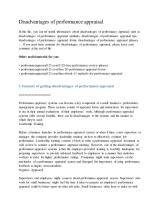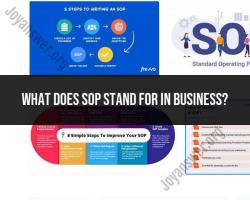Should you outsource or keep your data onshore?
Whether you should outsource or keep your data onshore depends on various factors, including your organization's specific needs, regulatory requirements, risk tolerance, and budget constraints. Each approach has its advantages and disadvantages. Here's a comparison to help you make an informed decision:
Outsourcing Data Storage:
Cost Efficiency:
- Outsourcing data storage to cloud providers or third-party data centers can often be more cost-effective. You can avoid the upfront costs of building and maintaining your data center.
Scalability:
- Cloud providers offer scalable solutions, allowing you to easily expand or contract your storage needs as your business grows or changes.
Accessibility and Redundancy:
- Many data storage providers offer redundancy and high availability, ensuring data is accessible even in case of hardware failures.
Expertise and Support:
- Outsourcing providers typically have expertise in data management and security. They can provide technical support and ensure data protection.
Global Access:
- Cloud-based solutions enable access to data from anywhere with an internet connection, which can be advantageous for remote work and global operations.
Onshore Data Storage:
Data Control:
- Keeping data onshore provides more direct control over the physical and logical security of your data. You can implement your security measures and protocols.
Compliance and Legal Requirements:
- Certain industries and organizations, such as government agencies and healthcare providers, may have regulatory requirements that mandate onshore data storage to ensure compliance.
Data Sovereignty:
- Storing data onshore can help maintain data sovereignty, ensuring that your data is subject to the laws and regulations of your own country rather than those of another jurisdiction.
Reduced Data Transfer Latency:
- Local data storage can reduce data transfer latency, which can be essential for applications that require low latency, such as real-time data processing.
Security Concerns:
- Some organizations may have heightened security concerns when it comes to storing data with third-party providers, particularly if the data is sensitive or confidential.
Upfront Costs:
- Onshore data storage may require substantial upfront investments in infrastructure, data centers, and IT personnel.
In summary, the choice between outsourcing and onshore data storage should be based on a careful assessment of your organization's needs, compliance requirements, and risk tolerance. It's also worth considering a hybrid approach where you combine both options to leverage the benefits of each. Additionally, the specific provider you choose for outsourcing and the location of onshore data storage play crucial roles in the decision-making process. Consult with IT professionals and legal experts to ensure you make the most suitable choice for your data storage needs.
Data Management Dilemma: Deciding Between Outsourcing and Onshore Storage
When deciding whether to outsource or store data onshore, there are a number of factors to consider, including:
- Cost: Outsourcing data storage can be more cost-effective than storing data onshore, especially for large amounts of data. However, there may be additional costs associated with outsourcing, such as data transfer costs and security costs.
- Control: Outsourcing data storage gives you less control over your data. This is because your data will be stored on the servers of a third-party provider. If you need to have complete control over your data, then onshore storage may be a better option.
- Security: Outsourcing data storage can be more secure than storing data onshore. This is because third-party providers typically have more sophisticated security measures in place. However, it is important to choose a third-party provider with a good reputation for security.
- Compliance: If you are subject to any data compliance regulations, then you need to make sure that your data storage solution meets those regulations. Outsourcing data storage to a third-party provider can help you to comply with data regulations.
Making the Call on Outsourcing vs. Onshore Data
There is no one-size-fits-all answer to the question of whether to outsource or store data onshore. The best decision for you will depend on your specific needs and requirements.
If you are on a tight budget and need to store a lot of data, then outsourcing may be a good option for you. However, if you need to have complete control over your data or you are subject to strict data compliance regulations, then onshore storage may be a better option.
Navigating Data Outsourcing: Weighing Onshore and Offshore Options
If you do decide to outsource your data storage, you need to decide whether to outsource to an onshore or offshore provider.
Onshore providers are located in the same country as you are. This can give you more peace of mind knowing that your data is stored close by. However, onshore providers can be more expensive than offshore providers.
Offshore providers are located in a different country than you are. This can make it more difficult to access your data and to resolve any problems that may arise. However, offshore providers are typically less expensive than onshore providers.
When choosing a data outsourcing provider, it is important to consider the following factors:
- Location: Where is the provider located?
- Security: What security measures does the provider have in place?
- Compliance: Does the provider meet your data compliance requirements?
- Cost: How much does the provider charge?
- Reputation: What is the provider's reputation for reliability and security?
By carefully considering all of these factors, you can make the best decision for your business.
Conclusion
There is no right or wrong answer to the question of whether to outsource or store data onshore. The best decision for you will depend on your specific needs and requirements. If you are unsure which option is right for you, it is a good idea to consult with a data management expert.













